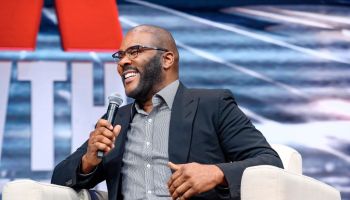NEW YORK — Mayor Michael Bloomberg’s announcement of a $127 million project to help young black and Latino men was met with praise, but also some criticism over its funding on Thursday.
The Young Men’s Initiative targets about 315,000 black and Latino men between the ages of 16 and 24, a demographic that has seen stubbornly high rates of unemployment, incarceration and poverty. Half of the three-year project will be financed by the foundations of Bloomberg and his fellow billionaire George Soros, while $67.5 million will come from the city budget. The mayor’s office called the program the country’s “boldest and most comprehensive effort” to tackle the problem.
“When we look at poverty rates, graduation rates, crime rates and employment rates, one thing stands out: Blacks and Latinos are not fully sharing in the promise of American freedom and far too many are trapped in circumstances that are difficult to escape,” Bloomberg said as he announced the program at a breakfast on Thursday.
The program will focus on job training, education, reform of parole procedures and fatherhood classes. More than a dozen city agencies will be involved. As part of the effort, Bloomberg issued an executive order barring city agencies from placing undue barriers before job applicants with criminal convictions unrelated to the job.
“A job is the best anti-poverty and anti-crime program ever devised anywhere in the world,” Bloomberg said.
The initiative was applauded by advocates for ex-prisoners who noted that, statewide, New York has moved toward reducing its prison population.
“This is a contribution to the health of the city in terms of what matters most, which is salvaging young lives,” said JoAnne Page, president of The Fortune Society, a nonprofit that helps recently released prisoners. Her group works with about 4,000 ex-prisoners a year, the vast majority of whom are black and Latino men, she said.
A criminal conviction can be like a scarlet letter for job applicants, Page said. The city will now ask applicants about a criminal history later in the application process to keep them in the running for jobs, she said.
Chris Watler, project director at the nonprofit Harlem Community Justice Center, said giving a young man a job has a ripple effect, helping families and ultimately stabilizing communities.
But others questioned the strategy of providing millions for job training without a guarantee that there’s a job waiting.
“Training people for jobs that don’t exist isn’t always the most effective strategy,” said Joel Berg, executive director of the New York City Coalition Against Hunger.
Berg commended Bloomberg for funding the program, but said he wished it did more to encourage corporate leaders to create living-wage jobs.
Others said the announcement raised questions about Bloomberg’s overlapping roles as politician and philanthropist.
“You have private money which is pushing where the public money will be spent,” said Susan Lerner of the watchdog group Common Cause New York. “Where’s the evaluation process? Where’s the public input?”
City Council member Charles Barron, a frequent critic of the mayor, said the program looked like a way for Bloomberg to burnish his legacy as his time in office winds down. Bloomberg’s approval ratings have lagged in his third term, particularly after criticism of the city’s response to last winter’s blizzard.
“I think it’s hypocritical and a Band-Aid,” Barron said, criticizing the mayor for cutting funds for youth programs from the city budget.
“I think this was more for the mayor than for the youth.”
But others noted that the mayor is not expected to run for office again, so he wouldn’t stand to gain politically.
“This is what makes him a unique mayor and civic-minded philanthropist, that he does care deeply and uses his private money for public good,” said Dick Dadey, executive director of the Citizens Union.
RELATED:
“Awkward Black Girl” Webseries Gets Huge Push From Supporters















